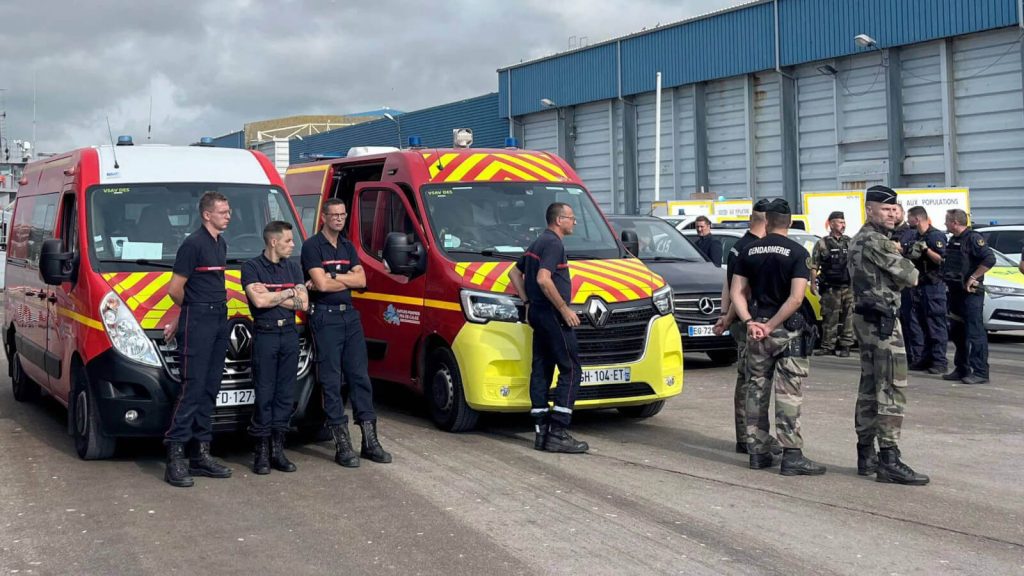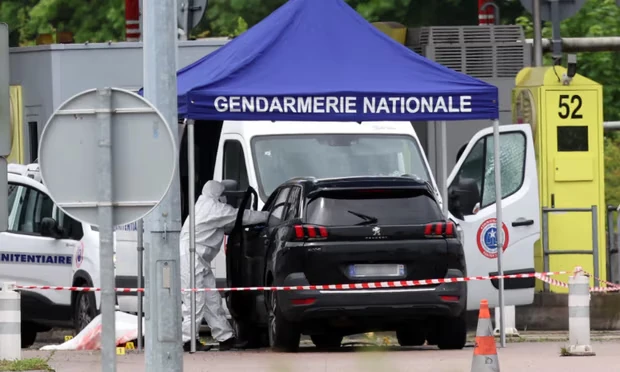In the wake of a tragic incident where six children and a pregnant woman were among 12 people who perished after a migrant boat capsized off the coast of Boulogne, France, local officials and residents are increasingly pointing fingers at Britain. The French rescue workers, having packed up their gear with practiced efficiency, left the quayside in Boulogne, leaving behind a somber scene as the last ambulances drove away.
“It’s so upsetting,” said Frederic Cuvillier, Boulogne’s mayor, reflecting on how the ongoing migrant crisis has reshaped and traumatized France’s northern coastline. “These people flee death and end up dying here. Mothers, children… convinced they will find a better life across the Channel,” he added, gesturing towards the grey sea.
The divergent reactions between France and the UK to such tragedies are stark. In the UK, officials swiftly condemn the smuggling gangs, viewing each incident as a result of criminal activity. Indeed, the smugglers often overcrowd flimsy boats with insufficient life jackets, putting migrants at grave risk.
In northern France, the police focus on patrolling the increasingly militarized coastline, equipped with more manpower, buggies, night-vision equipment, and drones funded by British taxpayers. However, as police operations expand, the smuggling gangs adapt, launching boats from inland canals or distant coastal points, and packing more people into dubious-quality inflatable boats.
The smugglers’ tactics have grown more violent, with stones hurled at police and knives brandished. Police footage shows pitched battles on beaches, with riot-shielded officers defending themselves against rock-throwing smugglers. The smugglers aim to buy a few seconds to launch their boats, after which police rarely intervene, fearing they may be blamed for putting migrants at greater risk.
For French politicians and civilians, the focus is not on the criminality of the smugglers but on the motives of the migrants. Many French people, from local mayors to ordinary citizens, believe the crisis is Britain’s fault. They resent how their lives and communities have been transformed by a crisis they see as British-made.
France’s interior minister, Gerald Darmanin, echoed these sentiments on Tuesday at the harbour in Boulogne. While condemning the smugglers, he primarily blamed Britain’s loosely regulated job market, which acts as a magnet for migrants. Darmanin called for a new migrant treaty between Britain and the European Union, reflecting a widely-held belief in France that tackling the smuggling gangs alone is insufficient.
The crisis is seen as fueled by the demands of tens of thousands of determined migrants rather than the profit-seeking motives of criminals. Additionally, the media reaction differs significantly between the two countries. While the small boat crisis is big news in the UK, in France, preoccupied with its own political turmoil and tired of the situation on its northern coastline, even twelve deaths in the Channel barely make headlines.




![The scene of accident at Iguhu River Yala Bridge along Kisumu-Kakamega Road. [Courtesy]](https://i1.wp.com/cdn.standardmedia.co.ke/images/wysiwyg/images/cHrgpMKyb5MSFF30Nwq6znAuUsmbMN5zHf2xpbny.jpg?w=1200&resize=1200,0)
![Traffic Police officer (center) based at Kisumu Central police station in handcuffs after he and his colleagues were arrested for taking bribes along Kisumu-Busia and Kisumu-Kakamega roads on November 20,2019. The five officers were released on police bond.[ Courtesy]](https://i3.wp.com/cdn.standardmedia.co.ke/images/wysiwyg/images/DEJ2X8sR2oINJjNmK4bQQrKYQN5Y72sHtpEMozCm.jpg?w=1200&resize=1200,0)
![Mandera Governor Mohamed Adan Khalif. [File, Standard]](https://i3.wp.com/cdn.standardmedia.co.ke/images/wysiwyg/images/l15z9CS7tl2rMMSMWMSHudRQNKoXoB3xZU7aFXSu.jpg?w=1200&resize=1200,0)



![Trump hailed Hegseth as "tough, smart and a true believer in America First" in a social media post announcing the nomination [File: Roy Rochlin/Getty Images]](https://i0.wp.com/www.aljazeera.com/wp-content/uploads/2024/11/GettyImages-1399603355-1-1731495570.jpg?resize=770%2C513&quality=80&w=1200&resize=1200,0)
Pink Withney very informative articles or reviews at this time.
Henof naturally like your web site however you need to take a look at the spelling on several of your posts. A number of them are rife with spelling problems and I find it very bothersome to tell the truth on the other hand I will surely come again again.